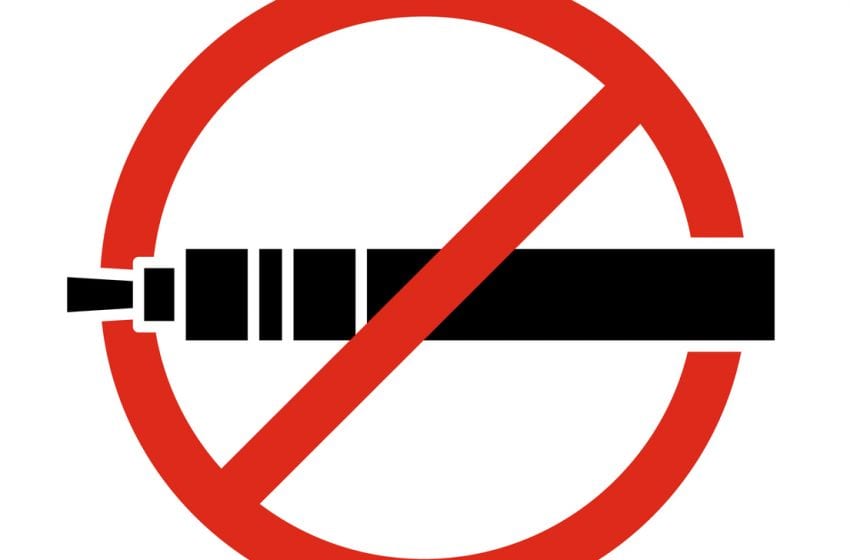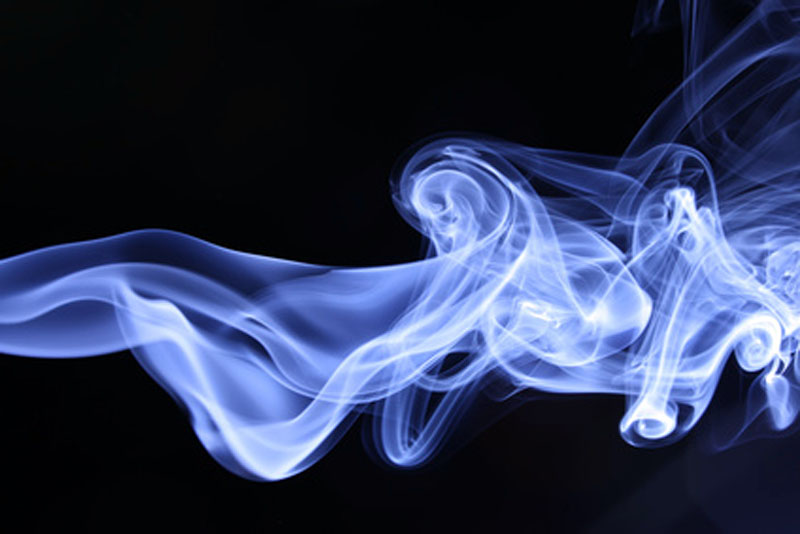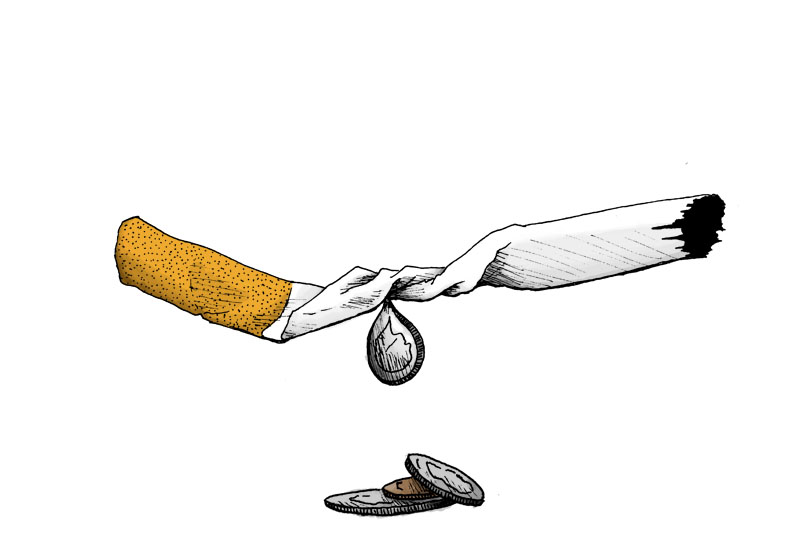Volume cigarette sales in Malaysia, which began to stabilize in the third quarter of 2017, are expected to be maintained at the start of 2018, barring any market shocks, according to a story in The Edge Financial Daily quoting analysts.
In part, this stability will be underpinned by a stronger economy that is said to be delivering increased disposable incomes.
The local cigarette industry has been hit hard in recent times by the illegal trade, which has been boosted by tax-driven retail price increases on licit products.
“We think demand should improve as disposable income improves alongside economic growth,” Vincent Khoo, UOB Kay Hian’s head of research for Malaysia, was said to have told the Daily by email. “While tobacco is arguably more of a [consumer] discretionary rather than a necessity, an improved economy should trickle down to better tobacco consumption, provided there is no hike in duties or prices.”
Khoo said he believed it was unlikely that the government would raise excise-duty rates because this would lead to a fall in the government’s revenue.
Based on the finance ministry’s third-quarter 2017 report on the Malaysian economy, indirect tax collection dropped 7.3 percent to RM14.6 billion, from RM15.7 billion during the third quarter of 2016 due to excise-duty collection being down 26.4 percent, largely because of a fall in the sale of locally manufactured cigarettes.
Category: Taxation

Better times ahead

Smokers over-taxed
Is it ethical for the New Zealand government to collect nearly $2 billion in extra tax from addicted smokers while spending only three percent of the money on helping them to quit? Should an addicted ‘pack-a-day’ smoker have to pay an extra NZ$7,000 in tax each year?
These questions were posed in an opinion piece in The Dominion Post by Kathy Spencer, a former deputy director-general in the Ministry of Health and a former manager of personal and indirect tax in the Treasury who has worked also as a senior advisor to a Minister of Health and a Minister of Revenue.
Spencer said that with a new government about to review the tax system, it was time for a fresh look at how to reduce smoking in New Zealand.
For a very long time, the tax on tobacco had been the government’s primary weapon against smoking. It was claimed to be the most effective method, but Māori, Pasifika and low-income groups had been slower to give up smoking than had other New Zealanders; so the people within these groups were paying a disproportionate share of this tax, which was going up relentlessly.
Spencer said a common belief was that the tobacco tax was there to cover the public health costs associated with smoking, including passive smoking.
First off, the idea that smokers should be expected to meet these costs was highly questionable since people who were overweight or had bad diets were not expected to pay extra towards their health costs. New Zealand’s public health system simply didn’t work that way, and nor should it.
However, even if were accepted that smokers should pay for health costs, it started to become clear 10 years ago that they were over-paying. A 2007 study commissioned by tobacco control groups concluded: ‘It appears likely that smokers contribute considerably more in taxes than the net “economic costs” to the rest of the community caused by their smoking’.
Spencer said that in 2012, the Treasury also acknowledged that the tax revenue was probably higher than the direct health system costs of smoking. And it noted that smokers received less superannuation and aged care, reducing costs in these areas.
‘Taking these savings into account means that smokers have been paying their own way, and more, for years,’ Spencer said.
Spencer’s piece, which includes suggestions for tackling the tobacco-tax issue, is at: https://www.stuff.co.nz/dominion-post/comment/100188998/tax-burden-unfair-on-smokers.

Tax reduction on hold
Pakistan’s Peshawar High Court on Tuesday issued a stay order against the federal government’s decision to reduce taxes on tobacco products, and directed respondents in the case to submit their responses, according to a story by Hidayat Khan for the Express Tribune.
The lawsuit was filed by Hameed Khan, a resident of Chota Lahore, through his counsel Babar Khan Yousafzai, who argued in court that the reduction in taxes would make tobacco products cheap in the country and create health hazards.
It would also result in the closure of local tobacco companies, he said.
“Some 3,000 employees have lost their jobs over the last four months due to closure of some tobacco units,” the petitioner argued. “They have not taken the stakeholders on board before introducing the third tier of taxation through the Statutory Regulatory Order (SRO).”
The court accepted his petition for hearing, issued a stay order against the new tobacco-taxation rules and directed respondents to submit their replies by January 18.
The respondents in the case were said to comprise the government of Pakistan, through the finance secretary, the Federal Board of Revenue (FBR), the Ministry of Justice and the Federal Minister of Health Services.
Aiming to combat the country’s illegal trade in cigarettes and the consequent ‘massive duty evasion’, the FBR issued the SRO in June to introduce a third tier in the taxation structure of the tobacco industry. The decision, the petitioner feared, would lead to a reduction in cigarette prices and increase demand.
The plaintiff asked the court to issue an order for revoking the recent SRO and applying cigarette tax at the rate of Rs33.4 per pack.
He claimed that with the introduction of the third tier of taxation, multinationals were able to sell cigarettes cheaply and increase their sales.
“High prices are the only way to counter cigarette consumption in the world,” the petitioner told the court. “But in Pakistan, multinationals are given a free hand to reduce prices while benefitting from lower taxation.”
“Pakistan is the only country where taxes on high saleable brands have been reduced by 33.3 percent,” he argued. “This is also a breach of the World Health Organization’s convention on tobacco control.”

HNB prices to rise in Korea
The South Korean unit of Philip Morris International said on Friday it would increase the price of its heat-not-burn (HNB) products, according to a story in The Korea Herald.
The per-pack retail price of HEETS, the consumable element of its HNB device, IQOS, will rise to 4,500 won ($4.13) starting on Wednesday, a 4.65 percent increase from the current 4,300 won.
The price rise was in response to a recent increase in the consumption tax imposed on HNB products and an expected increase in other levies, the company said.
At the same time, Philip Morris Korea said it would expand its plant in Yangsan, just north of the port of Busan, to manufacture HEETS.
The expansion will involve an investment of $420 million and the recruitment of an additional 700 workers.
Currently, the Yangsan plant manufactures Marlboro and other conventional tobacco brands for domestic sales and exports.

Thai e-cig ban challenged
A network of electronic-cigarette users yesterday pressed Thailand’s National Legislative Assembly to consider lifting the ban on the import, production, sale and possession of electronic cigarettes, according to a story in the Bangkok Post.
The Commerce Ministry earlier this year banned e-cigarettes and related products.
The chairman of the NLA’s commerce subcommittee, Siripol Yodmuangcharoen, who received the petition, said the group had backed its call for the ban to be reversed with information indicating that 160 countries allow the sale of e-cigarettes while only 15 countries ban them.
The group had claimed also that the ban on imported e-cigarettes resulted in a substantial loss in import tax revenues.
Siripol said the subcommittee would discuss the group’s demand.
Meanwhile, Maris Karanyawat, the network’s representative, said the group had presented its petition to the NLA along with the signatures of more than 17,000 people in support of the right of more than 11 million cigarette smokers to gain access to e-cigarettes.
The Post’s story is at: https://www.bangkokpost.com/news/general/1378195/network-fired-up-over-electronic-cigarette-ban

US equivocates on quitting
Not one US state funds tobacco prevention programs at levels recommended by the Centers for Disease Control and Prevention (CDCP).
This is one of the findings contained in a report, Broken Promises to Our Children: A State-by-State Look at the 1998 Tobacco Settlement 19 Years Later. The report was published yesterday by the Campaign for Tobacco-Free Kids, the American Cancer Society Cancer Action Network, the American Heart Association, the American Lung Association, the Robert Wood Johnson Foundation, the Americans for Non-smokers’ Rights and the Truth Initiative.
It finds that the states will collect $27.5 billion this year from the tobacco settlement and tobacco taxes, but will spend less than three percent of that income, $721.6 million, on tobacco prevention programs.
And the $721.6 million that the states have budgeted for tobacco prevention is a small fraction of the $3.3 billion the CDCP recommends. Not a single state funds tobacco prevention programs at CDCP-recommended levels, and only two states, Alaska and California, provide more than 90 percent of the recommended funding.
But the report finds that states with ‘well-funded’, sustained tobacco prevention programs have seen remarkable progress. Florida, with one of the longest-running programs, had reduced its high school smoking rate to 5.2 percent, one of the lowest rates ever reported by any state.
A press note announcing the publication of the report said the US had reduced smoking to record lows of 15.1 percent among adults and 8.0 percent among high school students.
‘But tobacco use still kills more than 480,000 Americans and costs the nation about $170 billion in health care bills each year,’ the note said.
‘Today’s [Wednesday’s] report also highlights large disparities in who smokes and who suffers from tobacco-related diseases in the United States.
‘Smoking rates are especially high in a swath of 12 states in the Midwest and South, an area called “Tobacco Nation” in a recent Truth Initiative report.
‘Nationwide, smoking rates are highest among people who live below the poverty level and have less education, American Indians/Alaska Natives, LGBT Americans, those who are uninsured or on Medicaid, and those with mental illness.
‘These differences are in large part due to the tobacco industry’s targeting of vulnerable populations through advertising, price discounting and other marketing strategies.
‘By funding tobacco prevention and cessation programs at the CDC’s recommended levels, states can reduce tobacco use among all Americans. But most states are falling far short…’
The report ranks California as the top state for funding programs that prevent children from smoking and help smokers quit, while it put Connecticut and West Virginia, which each budgeted zero state funds this year for tobacco prevention and cessation programs, equal bottom.

Taxes to rise in Philippines
The Philippines’ Congress last night ratified the Tax Reform for Acceleration and Inclusion (TRAIN) bill despite objections from several lawmakers and senators, according to a ABS-CBN News Manila story quoting an unnamed lawmaker.
Sixteen senators voted to adopt the tax reform package that had been approved by a bicameral panel. Four senators voted against the bill.
Based on estimates made by the Department of Finance, the approved tax reform measures will yield about P130 billion in net revenue during its first year of implementation.
Under the bill, lawmakers decided to increase tobacco excise from P30.0 per pack to P32.5 per pack in the first half of next year, and to P35 per pack during the second half of the year.

Tax debate heats up
Anti-tobacco advocates in the Philippines have flooded the twitter and social media accounts of members of the bicameral committee deliberating on tax reform to oppose a proposed tobacco-tax rise they deem insufficient – five pesos per pack, according to a report on News5-InterAksyon.
The rise was reportedly proposed by Marikina Rep. Miro Quimbo.
“This is gross treachery on the part of the legislators,” was the reaction of Dr. Maricar Limpin, executive director of Action on Smoking and Health, Philippines. “The Quimbo Morris proposal adopted House Bill 4144 that is still pending in the Senate.
“The senators rejected our appeal to include in the tax reform bill the proposals of Sen. Manny Pacquiao and Sen. JV Ejercito that are way better than the House Bill because they said it did not go through the committee hearing. And now this.”
Limpin appealed to the senator members of the bicameral committee to keep their promise to discuss the Pacquiao Ejercito proposal in the Senate in January.
Meanwhile, Rio Dayao, vice president of liaison at the University of the Philippines Economics Towards Consciousness (ETC), said the pro-tobacco legislators would suffer the consequences of adopting the proposal of Rep. Quimbo.
“We will expose them to voters as responsible for the initiation of 200,000 youth to smoking,” Dayao was quoted as saying.
“These additional new smokers will result in additional 2,000 deaths per year to the current deaths of 150,000 from tobacco-related diseases. They will have blood on their hands.”

Taxes on taxes on taxes…
Tobacco farmers and laborers in the Philippines yesterday appealed to a bicameral panel looking into tax reform to consider their plight before further increasing tobacco excise tax, according to a story in The Philippine Star.
Past and ongoing tobacco-tax increases have been blamed for a fall in tobacco production, which, according to the National Tobacco Administration (NTA), went from 68 million kg in 2013 to 52 million kg in 2015.
The Trade Union Congress of the Philippines (TUCP), the PhilTobacco Growers Association, and the Federation of Free Farmers expressed their opposition to a further rise in tobacco excise tax, citing the significant reduction in production and huge job losses following the yearly ‘exorbitant’ hikes in tobacco tax since 2013.
Under the current law, tobacco taxes automatically increase by four percent annually.
“What the proponents of a radical increase in sin tax fail to recognize is that every time a move to increase the tobacco sin tax is proposed, thousands of tobacco farmers and laborers are faced with the threat of losing their primary source of income and livelihood,” said TUCP president Ruben Torres, a former labor and executive secretary.
Torres said that data from the NTA had shown that the number of workers in the tobacco industry had been reduced by 9,232 farmers in 2015 alone.
Another related NTA report had shown there was also a decline in the area of the land planted to tobacco from 38,264 ha in 2014 to 32,761 ha in 2015.
He said that the tobacco industry had already contributed greatly to the national coffers. Despite the tobacco farmers’ contribution to the national income, it was unfortunate that this sector was always targeted as the sole ‘big’ source of national revenues for the government.

Taxes on taxes on taxes…
The retail price of refill packs of heat-not-burn (HNB) cigarettes is likely to rise to more than 5,000 won ($4.59) next year following the passing of another bill to raise taxes on these products, according to a story in The Korea JoongAng Daily.
The National Assembly voted on Friday to raise taxes by 532 won to 1,292 won. The bill will go into effect next month.
Last month, the assembly passed a bill to hike a special consumption tax on these products by 403 won to 529 won. The tax increase was applied from this month but has not affected prices.
And yet another bill is waiting for a vote later this month on whether to raise the ‘special charges’ on these products for the so-called ‘National Health Promotion’ from 438 won to 750 won. Industry sources say this vote is highly likely to pass.
If next month’s bill goes through, the total amount of taxes imposed on heat-not-burn cigarette-refills will rise to 2,986 won from 1,739 won earlier this year.
That would be an increase of about 72 percent and would bring the taxes imposed on HNB products to about 90 percent of those imposed on combustible cigarettes, 3,323 won.
All three heat-not-burn cigarette refills in Korea – used with Philip Morris International’s IQOS, British American Tobacco’s glo and KT&G’s lil – have been selling for 4,300 won for packs of 20.
This has made them slightly cheaper than combustible cigarettes, most of which sell for 4,500 won for 20.
The tax increases on HNB products could make them more expensive than combustible products, though no manufacturer has revealed plans of by how much or when it will raise prices.
During the past few months, PMI and BAT have reacted to government tax rises by saying they are discussing the matter internally. But KT&G said at lil’s launch event last month that it was not considering a price rise, and it is maintaining that stance.








